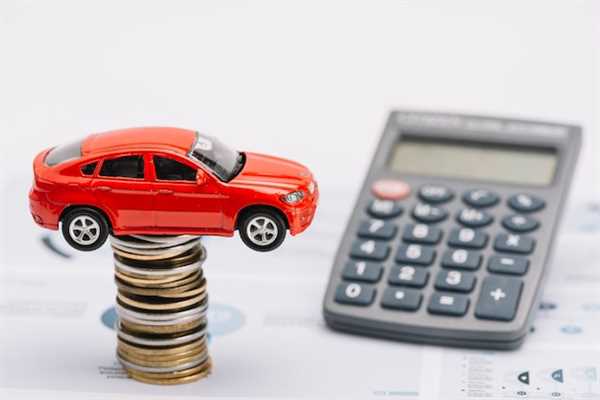
Research the market value of the model you’re interested in before making any commitments. Websites like Kelley Blue Book or Edmunds provide invaluable insights into pricing trends, allowing you to identify a fair deal.
Explore local auctions as a viable option. Many people overlook this excellent opportunity to acquire a vehicle at below-market prices. Ensure you attend a few auctions to understand how they function and observe the bidding process.
Inspect any used automobile thoroughly, ideally with a trusted mechanic. A detailed assessment helps uncover issues that may not be immediately visible, protecting your investment in the long run.
Negotiate with confidence. Don’t hesitate to make an offer lower than the asking price based on your research. Sellers often anticipate some level of negotiation, and this could lead to significant savings.
Check vehicle history reports via platforms like Carfax or AutoCheck. This information reveals past accidents, ownership details, and any potential red flags that could influence your decision.
Finalize financing before visiting dealerships. Knowing your budget and securing a loan pre-approval streamlines the buying process and strengthens your negotiating position.
Smart Tips for First-Time Car Buyers
If you seek a way to secure a quality used vehicle, consider attending local auctions. These events often offer excellent deals on cars that are ready to drive but priced significantly lower than retail options.
Prioritize research on various used models to identify which have a solid reputation for reliability. Online resources and forums provide insights into common issues with specific vehicles.
Pair inspection with a trusted mechanic. An expert can identify potential problems and save you from buying a vehicle that could become a costly headache.
Be clear about your budget. Include taxes, insurance, and potential repairs in your financial planning. Avoid the temptation to stretch your budget for a model that doesn’t fit all your needs.
Don’t hesitate to negotiate. Many sellers expect some back-and-forth. Be polite but firm on what you can pay, using research to support your offer.
Lastly, consider financing options. Compare rates from various lenders to secure the best deal. A strong credit score often leads to lower interest rates, making monthly payments manageable.
Understanding Car Auction Processes

Before attending an auction, research the auction house thoroughly. Review their reputation, fees, and terms. This will help in making informed decisions throughout the process.
Identify any vehicles of interest ahead of time. Check available listings online or visit in person to assess the condition and details. This preparation allows for effective evaluation during bidding.
Inspect cars during preview days. Look for wear and tear signs, check fluid levels, and assess tire conditions. Taking notes enables a more informed bidding strategy.
Establish a budget prior to the auction. Determine the maximum amount willing to spend on a vehicle, including fees and potential repairs. Stick to this budget to avoid overspending.
Understand how bidding works. Each auction has its own procedures; learn about starting bids, incremental increases, and when to place bids. Observe other bidders to gauge competition.
Consider attending a couple of auctions without bidding. This will provide insights and familiarity with the process, helping to build confidence for future purchases.
Network with other buyers and industry professionals at the auction. Connecting with experienced bidders can provide additional knowledge and guidance about the vehicles and the auction environment.
Use a trustworthy mechanic or car expert to assist with technical evaluations. Their expertise can highlight potential issues that may not be immediately visible.
After winning a bid, ensure to complete all paperwork correctly. Confirm the vehicle’s title transfer and any relevant documents to avoid future complications.
Key Considerations When Buying a Used Car
Focus on vehicle history reports. Services like Carfax and AutoCheck provide detailed records, revealing past accidents or odometer discrepancies. This data is crucial in assessing the reliability of the auto.
Examine the exterior and interior closely. Look for rust, dents, and signs of wear. A meticulous inspection highlights potential issues that may later lead to costly repairs.
Always take a test drive. This allows you to gauge how the vehicle performs in real-world conditions. Pay attention to how it accelerates, brakes, and handles various terrains.
Check the auction listings to compare prices. Auctions can yield great deals but do your homework first to understand the going rates for the specific make and model you want.
Verify the vehicle’s title status. Ensure it’s clear, meaning no liens exist against it. A clean title simplifies the purchasing process and protects against future legal complications.
Factor in ownership costs. Research insurance premiums, fuel efficiency, and maintenance requirements. These costs impact long-term affordability beyond the initial purchase price.
Negotiate firmly. Price flexibility exists in the used vehicle market. Be prepared with information and assert your position for a favorable deal.
Utilize a reputable mechanic for an inspection before finalizing any purchase. A professional check uncovers hidden problems, saving you from unexpected repairs.
Budgeting Smartly for Your Vehicle Purchase

Determine a clear price range before exploring options. This ensures focus on vehicles within reach, avoiding disappointments with models outside budgetary limits.
Consider all associated costs beyond the vehicle price. Factor in insurance, taxes, registration, fuel, and maintenance expenses. This broader view prevents unexpected financial strains later.
Utilize online calculators to estimate monthly payments based on down payment and financing terms. This helps visualize affordability and align expectations.
Research current market values of potential selections–both new and used. This knowledge helps negotiate better deals, especially at auctions where competition can be fierce.
Set aside funds dedicated solely to vehicle purchase. By allocating specific savings, it becomes easier to track progress and stay motivated to reach the financial goal.
Explore financing options early to secure the best rates. Credit scores play a pivotal role; consider reviewing and, if necessary, improving it prior to committing to any loan.
Attend local auctions to find potential bargains. Sometimes, the most attractive deals hide in unexpected places, offering significant savings compared to traditional dealerships.
Don’t rush the acquisition process. Allow time to thoroughly assess all vehicles of interest. Patience often yields the most beneficial outcomes.
Keep in mind that owning a vehicle incurs ongoing responsibilities. Understanding the total financial commitment enhances long-term satisfaction and stability.



